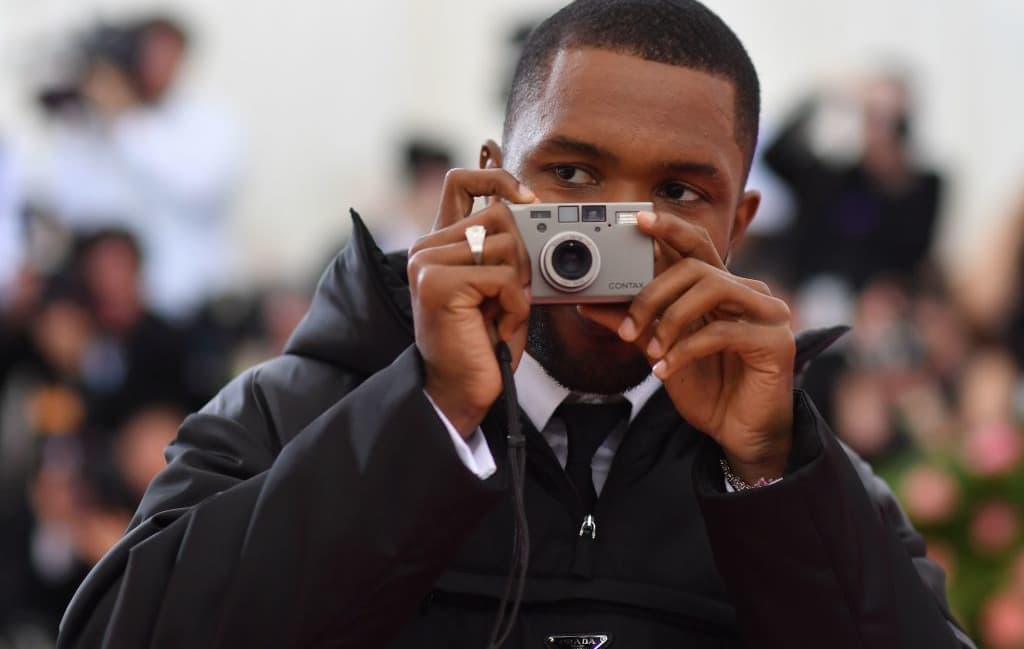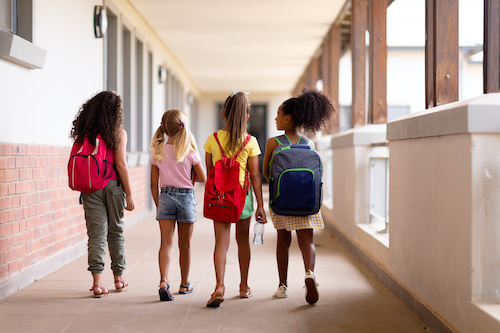COLUMN: In just one week, Trump created a new culture of anxiety in education
WASHINGTON, D.C. — President Donald Trump didn’t talk much about education during his reelection campaign, but he’s made up for it through a series of actions during his first week in office that have left many administrators, teachers, parents and students on edge. Trump already has reversed policies that kept immigration agents away from schools, […] The post COLUMN: In just one week, Trump created a new culture of anxiety in education appeared first on The Hechinger Report.


WASHINGTON, D.C. — President Donald Trump didn’t talk much about education during his reelection campaign, but he’s made up for it through a series of actions during his first week in office that have left many administrators, teachers, parents and students on edge.
Trump already has reversed policies that kept immigration agents away from schools, blocked attempts to reverse book bans and eliminated federal diversity, equity and inclusion training and other such programs, while sending a strong message that he’s “restoring the fundamental rights of parents to direct their children’s education,” as his acting assistant secretary for civil rights within the Education Department said last week.
The president is also ushering in a new era of anxiety, inciting deportation fears that are keeping immigrant children out of school and acting on some of the very same ideas he once dissociated himself from in the Heritage Foundation’s Project 2025 road map for his next administration. As a result, school officials and board members like Markus Ceniceros are spending much of their time reassuring parents that their children will be safe in U.S. classrooms and advocating for clear guidelines.
“Families should never have to live in fear of being separated while simply trying to access an education,” Ceniceros, 20, the youngest elected official in Arizona and a member of the Littleton Elementary School District Governing Board, told me, calling Trump’s recent actions deeply concerning. “This is a moment that demands all of us to fight back,” he said, “whether that’s in the boardroom, at the ballot box or in our communities.”
Related: Become a lifelong learner. Subscribe to our free weekly newsletter featuring the most important stories in education.
The impact of potential immigration raids on students is also being keenly felt: An estimated 408,000 undocumented students nationwide are not eligible for any legal protections and there are worries that go beyond deportation fears. “The threats are real and it feels like they’re reinforced almost daily,” Paulette Granberry Russell, president of the National Association of Diversity Officers in Higher Education, told The Hechinger Report recently.
Here are just a few of the president’s education-related orders so far:
- Trump opened the door for immigration arrests at schools and initiated an enforcement blitz in Chicago, prompting many districts to issue guidelines promising to protect immigrant children. (Officials at one school initially thought they were preventing U.S. Immigration and Customs Enforcement agents from coming inside: They later learned they were actually U.S. Secret Service agents.)
- Trump ended 50 years of federal antidiscrimination policies that promoted equal access to U.S. education. He also proposed instructing federal institutions to investigate DEI programs at schools with endowments over $1 billion and directed federal agencies to “combat illegal private sector DEI preferences, mandates, policies, and activities” — a move applauded by Christopher Rufo of the Manhattan Institute, who called it “a crowning achievement.”
- Trump ended investigations of book bans, dismissing 11 complaints from schools alleging that removing “age-inappropriate, sexually explicit, or obscene materials from their school libraries created a hostile environment for students.” Critics at PEN America called Trump’s action “alarming and dismissive of the students, educators, librarians, and authors who have firsthand experiences of censorship happening within school libraries and classrooms.”
Trump’s actions are causing more than confusion. On Friday, Rutgers canceled a planned virtual conference on apprenticeships at its Center for Minority Serving Institutions, citing Trump’s recent DEI orders. At a meeting of the American Association of Colleges and Universities in the nation’s capital last week, college officials discussed the shuttering of campus DEI offices, cultural centers and programs.
The college officials I spoke with there worried about the loss of initiatives that helped attract students from an array of backgrounds to feel comfortable on campuses, even after the Supreme Court’s ruling putting an end to affirmative action in college admissions. They also feared for their own jobs as well as a lack of protection from legislators and administrators who are rushing to comply with Trump’s orders.
Related: How Trump executive orders on immigration, transgender rights may affect schools
“It’s so important that we protect this work,” Sheila Lloyd, senior vice president for justice, equity and antiracism at Hampshire College, said during the meeting. “We are talking about protecting the soul of higher education.” Several administrators there also discussed the need to call DEI programs by other names, such as engagement of student success.
New guidance and suggestions will soon be available, said Marsha McGriff, vice chancellor for equity and inclusion and chief diversity officer at the University of Massachusetts, Amherst. McGriff and her entire staff at the University of Florida were fired last March after Florida Gov. Ron DeSantis signed a law he had championed that banned spending money on diversity issues.
“This is a moment that demands all of us to fight back, whether that’s in the boardroom, at the ballot box or in our communities.” – Markus Ceniceros, member, Littleton Elementary School District Governing Board, Arizona
“Everyone is scared,” Nancy Thomas, the association’s director of the Institute for Democracy and Higher Education, said at the meeting. The organization is strengthening its help desk to add resources for campuses that are being targeted by Trump or legislators and plan to announce new strategies.
Michael J. Petrilli of the Fordham Institute, a conservative policy group, acknowledges that Trump’s immigration policies could have a big impact. “The concern, of course, is that undocumented families will stop sending their children to school, which will make the chronic absenteeism problem significantly worse, and impede efforts at addressing learning loss,” Petrilli told me.
But he also offered a reassuring note. “When it comes to the day-to-day rhythms of life in the vast majority of America’s schools, things will likely be the same four years from now as they were a month ago,” Petrilli said. “The federal government is just too far removed from classrooms, given our decentralized system, to have much of an impact, for good or ill.”
Related: What education could look like under Trump and Vance
Heather Harding, executive in residence of Education Leaders of Color, said Trump’s first week left her wondering about any message of unity he once promised. She is getting ready to push back, just as she did when she spoke out against book bans while running Campaign for Our Shared Future, although she acknowledges that many who might protest are afraid of political violence.
“People still have got to stand up for what they believe is right; they should protest; they should make their voices heard,” Harding said.
“The federal government is just too far removed from classrooms, given our decentralized system, to have much of an impact, for good or ill.” – Michael J. Petrilli, Fordham Institute
With results from the Nation’s Report Card coming out this week, attention may move to how far behind U.S. students are in math and reading, leaving many wondering what Trump might do to address that problem. “There is still little evidence that the administration has plans for making schools more academically successful,” noted Conor P. Williams, a senior fellow at the Century Foundation, a progressive, nonpartisan think tank. “This is bitterly ironic,” Williams said, with the new administration waging many of its early culture war fights in the name of reorienting the federal Education Department on student learning.
David Bloomfield, professor of education leadership, law and policy at Brooklyn College and the CUNY Graduate Center, told me that while he’s “devastated by so much cruelty,” in the first week, he is not without hope.
“Ten, even five years ago, DEI wasn’t a mainstream movement, trans rights were nonexistent and book bans weren’t needed because LGBTQ+, immigrant and non-white voices were largely absent from the curriculum and library shelves,” Bloomfield said.
“The far right is ultimately fighting a losing war,” he said. “With media of all sorts available to kids, banning books, denying racism, or deporting immigrants will not change the fact that our schools are awash in varied ideas and students that challenge MAGA myths.”
This story about Trump deportations was produced by The Hechinger Report, a nonprofit, independent news organization focused on inequality and innovation in education. Sign up for the Hechinger newsletter.
The post COLUMN: In just one week, Trump created a new culture of anxiety in education appeared first on The Hechinger Report.























.png)





















![‘Companion’ Ending Breakdown: Director Drew Hancock Tells All About the Film’s Showdown and Potential Sequel: ‘That’s the Future I Want for [Spoiler]’](https://variety.com/wp-content/uploads/2025/02/MCDCOMP_WB028.jpg?#)



























